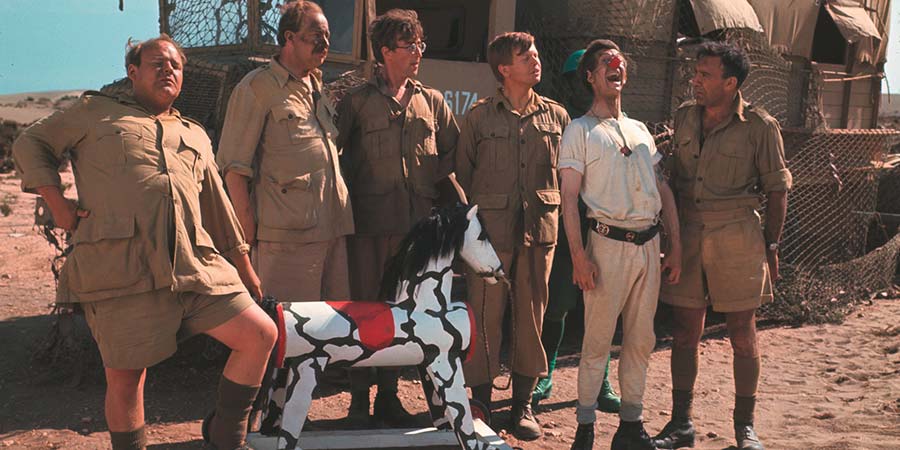
As the anti-war movement began to really take hold Richard Lester released his film How I Won The War (1967). How I Won The War wasn’t just an anti-war film, it was antithetical by design to all of the trappings of war films that put war into a context of honor, pride, and duty. Scripted by Charles Wood, who had himself written such patriotic films, How I Won The War set out to disembowel the war films of David Lean, Howard Hawks and John Ford. The troubling thing about How I Won The War is that it is highly successful as an anti-war picture while being rather a failure as anything else.
The plastic stylization Richard Lester implements swings from one extreme to the other. At one moment this episodic film is a kind of Dadaist fantasy while the next it’s a genre deconstruction akin to the post-modern impulses that defined the French and Czech New Waves. In a film that is, on a technical and formal level, so tumultuous only the strongest or most familiar characters can hold the viewer’s attention. Unlike Help! (1965) Lester wasn’t working with characters that already existed as public figures. Michael Crawford’s dim witted, Wooster inspired officer is at the center of every vignette and provides the natural centerpiece while John Lennon’s Private Gripweed consistently captivates purely on our recognition of the charismatic Lennon himself. In How I Won The War every other character is little more than a specific type or cliche and thus the journey that these army men take through WWII is of little consequence.
For these reasons How I Won The War has failed to maintain any kind of cultural currency. How I Won The War isn’t an unenjoyable film (in spite of some long, dull stretches). Some moments (the final battle scene and the death of Gripweed or the cricket match) are rather inspired little set pieces. Soon to be overshadowed by Robert Altman’s M*A*S*H (1970), Lester’s film lives on only as a part of John Lennon’s legacy. For instance, it was while shooting How I Won The War in Spain that Lennon wrote Strawberry Fields Forever and posed for the first ever cover for an issue of Rolling Stone. These small bits of Beatles’ trivia have gone on to be the most well known aspect of this film.
